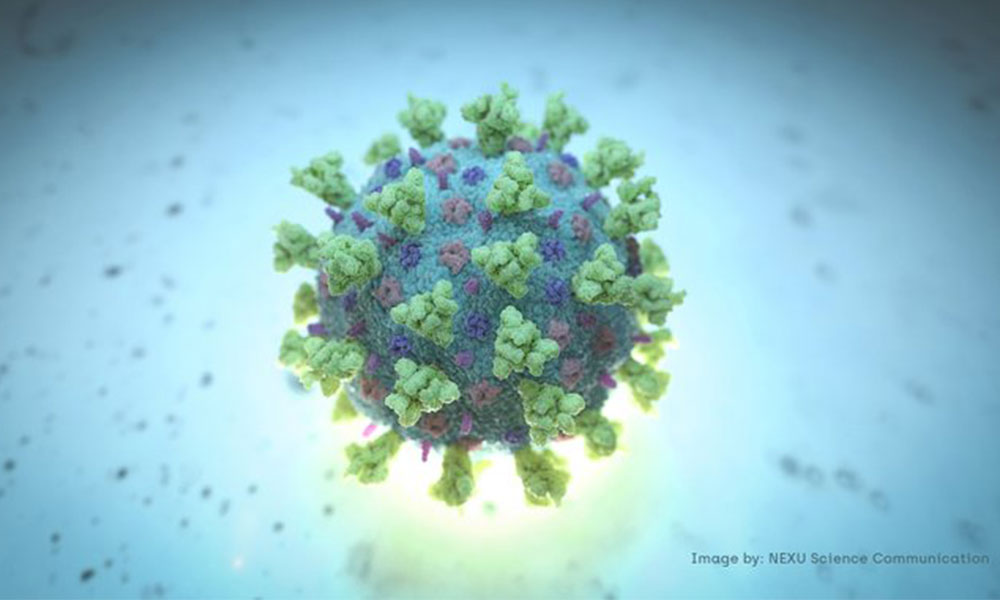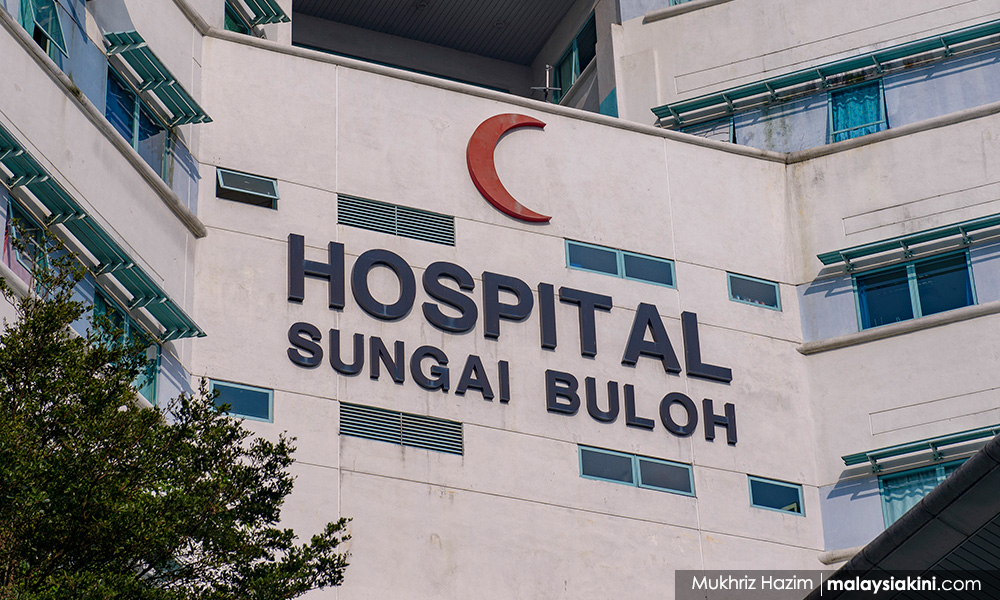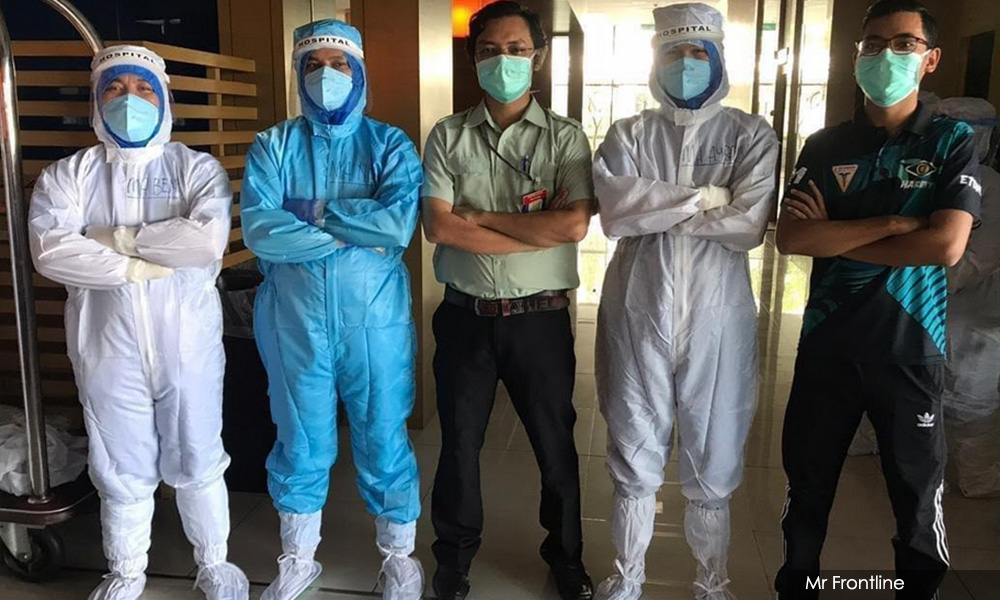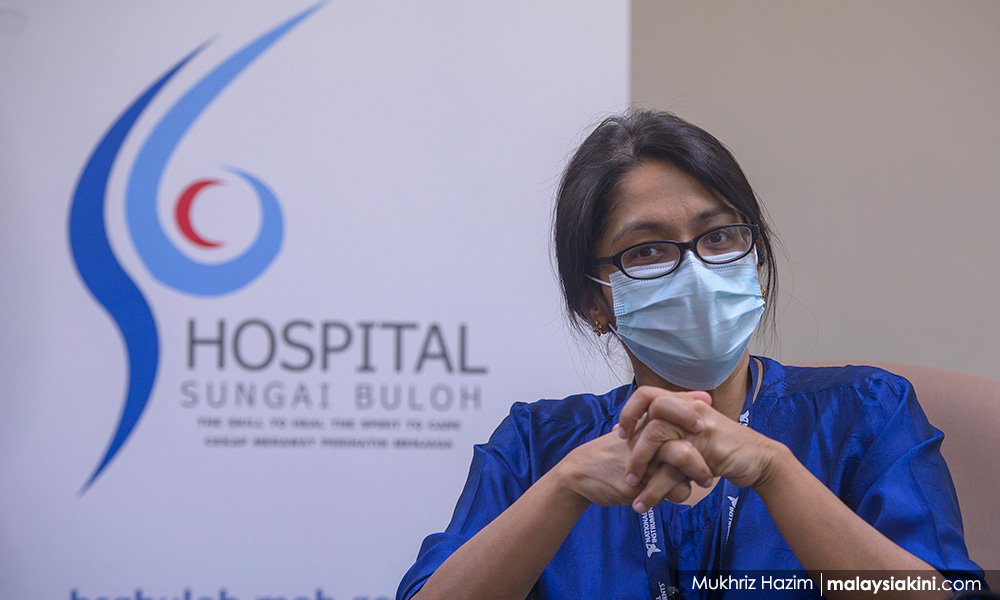"We have our first gp (sic) of patients. Activate".
That was the sentence that appeared on the screen of Dr Yasmin Mohd Ghani's (above) smartphone in the wee hours of Jan 25, 2020.
It was the first day of the Chinese New Year celebration, but there would be no holiday for the infectious disease consultant and her team at the Sungai Buloh Hospital.
Indeed, the night before, Yasmin and her teammates had burnt the midnight oil to brainstorm a "master plan" to prepare Sungai Buloh Hospital for the Covid-19 pandemic.
The virus, called SARS-CoV-2, was new to the world then, with the first case detected barely three months prior (Nov 2019) in Wuhan, China and a fair amount of mystery and secrecy shrouded its evolution in that city.
When the text came, it meant just one thing – Covid-19 had arrived in Malaysia.
On Jan 25, 2020, Malaysia recorded three positive Covid-19 cases among a group of Chinese-nationals who were on holiday in the country. A grandmother, aged 65, and her two grandchildren tested positive after crossing the causeway from Singapore, where two other family members had been confirmed with the virus earlier. The rest was history.

"We were expecting the coronavirus, but not this quick," Yasmin told Malaysiakini in an exclusive interview recently.
According to her, the country's infectious disease physicians’ community learnt about a new "pneumonia" in China when they had their annual academic meeting in late 2019. But very little was known about the virus then.
"We (infectious disease physicians) always follow the current development, especially when there is an outbreak scare. So, we were seeing that it was slowly escalating.
"Soon enough, the World Health Organisation (WHO) started issuing reports on the coronavirus in detail. And knowing that Chinese New Year was coming, we realised a lot of inter-country travel would happen and started preparing ourselves,” she said.

The preparations
Having learnt from experiences in previous outbreaks – from bird flu, H1N1, Ebola in 2013, and the still existing Middle-East Respiratory Syndrome Coronavirus (MERS-CoV) – Sungai Buloh Hospital already had the infrastructure and a blueprint on how to handle the pandemic.
They started by decanting two isolation wards to make space for possible Covid-19 cases. This was necessary as since it was a novel virus, patients had to be totally isolated from others as a precaution.
There are basically three levels of precautions in a pandemic – contact precaution, droplet precaution, and airborne precaution – with the latter being the highest due to the nature of its easy transmission.
The team understood what they might be facing, and transmission-based precautions were started. SARS-CoV-2 was known to spread via droplets, but Sungai Buloh Hospital did not want to take any chances.
"Because it is a novel coronavirus, which means it is still new, so the recommendation for the novel virus was to go for the highest - so we prepared ourselves for an airborne virus," Yasmin said.
Everything from personal protective equipment for healthcare workers in the hospital, up to isolation wards, were prepared to face the airborne virus.
Yasmin and the hospital ID team prepared a special duty roster for what they called the "Outbreak Response Team".
"At that time, many countries had started recording coronavirus cases, including our neighbour Thailand.
"We knew that it could be spread from person-to-person, but we did not know how fast it could transmit. Many things that we know today were not known then,” she recalled.
The Outbreak Response Team comprised core doctors who are involved in outbreak preparations - from consultants, specialists, specialists under training for infectious disease, medical officers, staff nurses, hospital assistants and up to supporting services like Radicare etc.

"The most important thing to prepare was a special roster because, during a pandemic, doctors cannot work normal hours. So we put them in a shift system, making sure that everyone would get time off after a 12-hour shift, which is not only for the physical health but also for mental wellbeing, especially after having to wear PPEs for long hours.
"I went to sleep after wishing my bosses happy Chinese New Year and got up at 6am to a message from my head of department, Dr Suresh Kumar, who said 'activate'. And that was how we started," she said.
The first patients
Yasmin got ready in no time. By 7.30am, she had already arrived at the hospital, ready to check on the grandmother and her two grandchildren who had arrived from Johor several hours earlier.
Also with them was the kids' mother, who at that time was not positive for the virus. She was allowed to stay in the same ward to care for the children, especially the two-year-old. The lady was later confirmed with the virus too.
The first challenge proved to be the language barrier as the family spoke a dialect of the Chinese language, with very little English. But luckily, the mother could also understand Mandarin, albeit not so much.
"Language was always a problem because they spoke very little English. We conversed in single words. We were so glad to have a Mandarin-speaking doctor in our team who was on duty that day, given that it was Chinese New Year.
"Their travel agent was also very helpful. He spoke with the mother (in her hometown dialect), so we also communicated with the family through him. It was easier that way."
Another challenge for the hospital team was basic necessities for the tourists, who were not used to Malaysian food. The toddler also could not take the milk available at the hospital.
"They are tourists. They didn't pack for 17 days of hospitalisation. There were issues about food, which were not suitable for them. The baby also could not drink the milk provided.
"So, we went out of our way to try to make them comfortable. Some of the doctors and I went shopping for the children to get diapers, formula milk, and a few other things.
"We also received assistance from our paediatrics ward, who helped to get certain milk products. The travel agent helped to get some stuff for the baby too," said Yasmin.
Luckily, the patients did not have any other medical complications, except for the mild fever, which was treated with paracetamol, and some dehydration and diarrhoea issues.
Thus, no anti-viral treatment was started on any of them. After all of them tested negative for Covid-19 twice, the family was discharged following the standard operating procedure (SOP) employed by the Health Ministry then.
Despite their predicament, Yasmin said the family never posed any trouble to doctors and nurses who treated them.
Yasmin said the women and children were "wonderful" and "calm" throughout their 17 days of stay.
"After their basic needs were settled, they were very courteous. We even phoned the lady's husband to let them talk and assure him that his wife and children are fine in our care."
One year on, the sacrifice continues
Yasmin had wanted to be a doctor since she was in school. The dream carried her all the way to the infectious disease speciality, which she became interested in while doing her Masters.

But her passion and huge responsibility also come with sacrifices.
"There is always this fear of bringing the disease back home. But I know how to take contact precautions, and we know it wasn't an airborne disease.
"My routine every day after work is to immediately shower and avoid too much interaction with the family.
"I also had to remain calm because people at home are very worried (over my wellbeing)," she said.
Yasmin added that she also did not expect at first that the Covid-19 outbreak would last this long, dragging for over a year now.
Looking back at the earlier days of uncertainty, the challenge was a very different one from when the third wave that began in September 2020 suddenly sent Malaysia’s Covid-19 numbers soaring.
The National Covid-19 Immunisation Programme that rolled last week, she said, gives some hope to medical frontliners to see an end to the pandemic.
"I don't know if it would end the pandemic. I really hope and pray it would, as life has to go on as normal.
"Hopefully, there will be enough herd immunity, and this will help us bring down the number of infections and we can get back to normal.
"It is definitely a light at the end of the tunnel,” said Yasmin. - Mkini




No comments:
Post a Comment
Note: Only a member of this blog may post a comment.